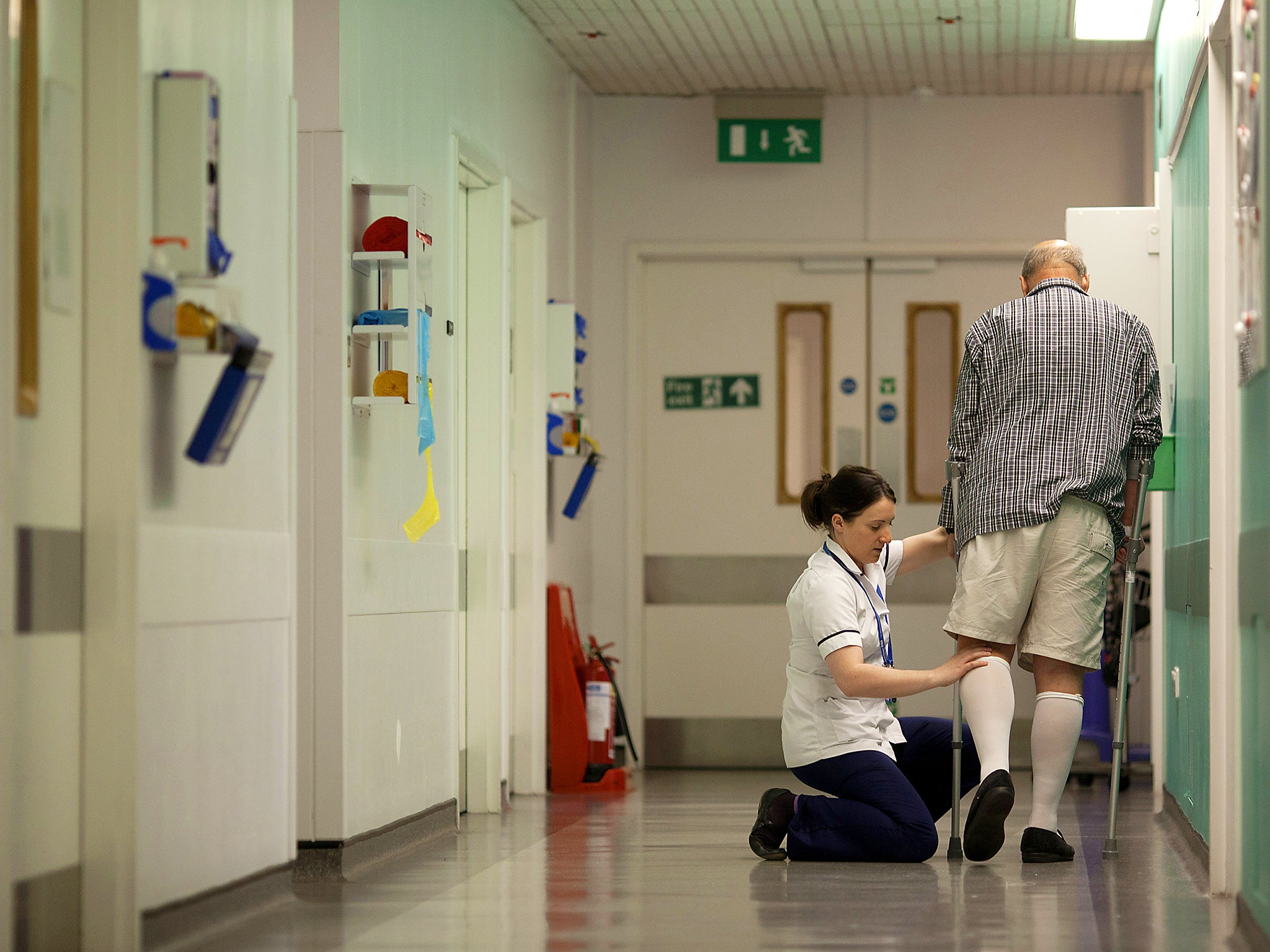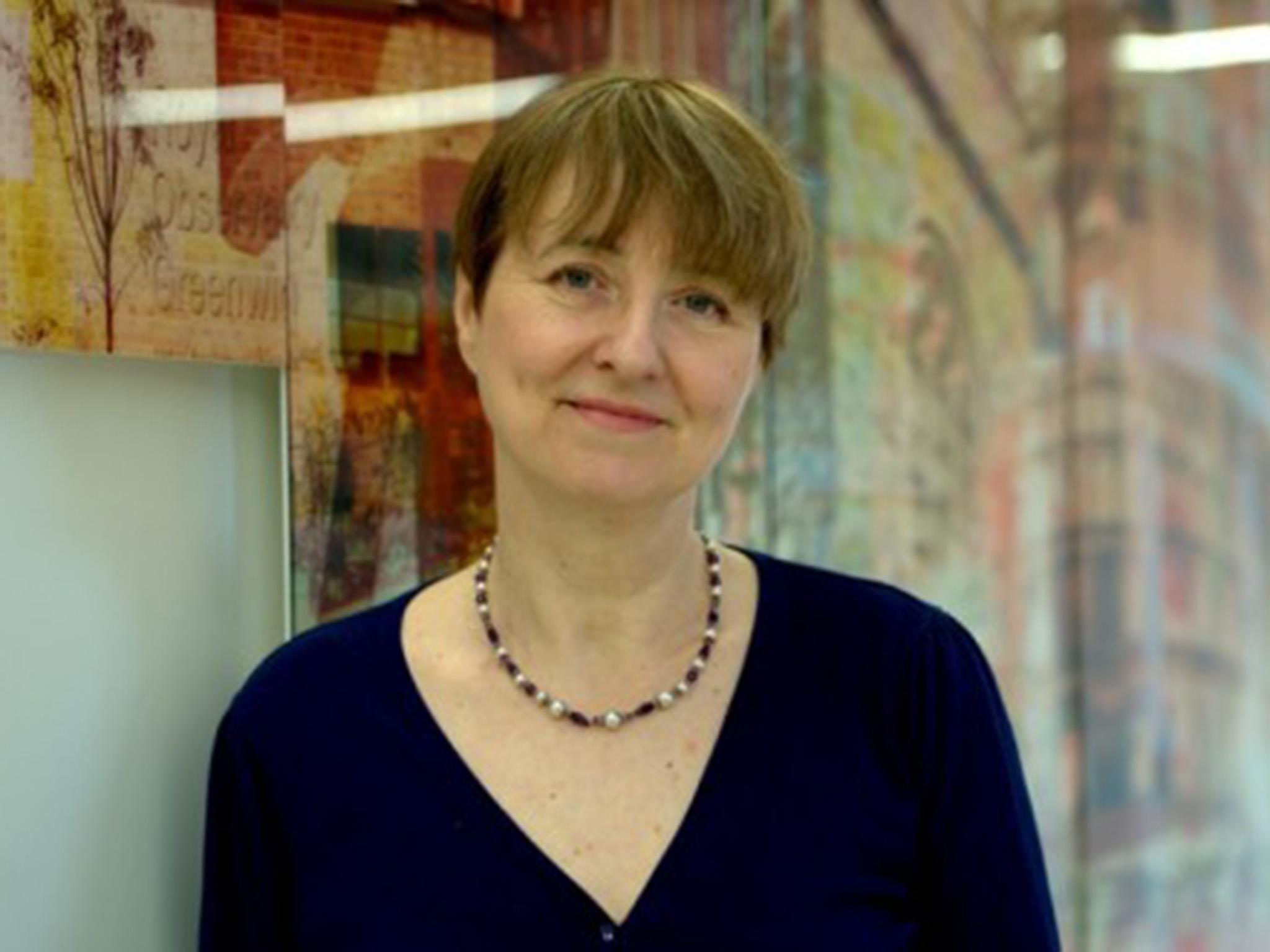Secret NHS cost-cutting plans sound 'death knell' for British healthcare, warn campaigners
Extended waiting times, ward and service closures, and withdrawal of public funding for some treatments among proposals in new national savings drive

Senior NHS managers are discussing secret cost-cutting plans to be announced after the General Election – measures that one chief executive described as the most extreme and difficult to hit the health service they had ever seen.
Extended waiting times, ward and service closures, and the withdrawal of public funding for some treatments are among the proposals in a new national savings drive designed to cap NHS spending, a leak has revealed.
Health bosses have been told to “think the unthinkable” when devising measures to save money in their regions, according to the Health Service Journal (HSJ).
The “truly shocking” scale of the proposed cuts and closures represent a “death knell” for the values of the NHS, said Louise Irvine, the GP hoping to unseat Jeremy Hunt on Thursday.
Dr Irvine, who is standing for the National Health Action Party in the Health Secretary’s constituency South West Surrey, told The Independent it is “fundamentally dishonest of the Conservatives not to have brought it up before the election.”
“Somebody leaked this because they want to sound the alarm,” she said. “If people are voting they have a right to know this is on the cards.”
The controversial measures are being discussed privately between top officials from NHS England and NHS Improvement and health managers in 14 areas of the country with the highest levels of overspending.
It is “critical” that regions which are “significantly out of balance now confront the difficult choices they have to take”, warned a letter to health service bosses in East Cheshire about the money-saving programme known as the “capped expenditure process”.
National targets such as the 18-week limit for planned surgery could be under threat because among the changes under consideration is drawing out waiting times for non-urgent care – including potential breaches of NHS constitution standards, reported the HSJ.
There are also proposals to increase waiting times in areas where delays are currently lower than average, an idea Dr Irvine called “callous”.
“Even services that are coping now and seeing people in a reasonable time, which is surely a good thing – they want to make those waiting lists longer, too,” she said. “Deliberately making waiting times longer for services which currently have shorter waiting times is really callous, in my view.”

Other ideas under consideration as part of the programme, which aims to ensure NHS spending meets budget targets for this year, include limiting the number of operations carried out by non-NHS providers to make sure funding stays within the health service, which could limit patients’ choice of providers.
NHS funding could also be withdrawn for new and recently-approved treatments and those considered “low value” – adding to the list of prescription items such as cough medicine and gluten-free food that patients were made to pay for earlier this year.
The closure or downgrading of services, in some cases to major hospital departments such as A&E and maternity, selling land and reducing staffing while attempting to maintain enough emergency care capacity to deal with the busy winter period are also among the changes on the cards.
The managers have been asked to first consider how they can save money elsewhere, but half of those that spoke to the HSJ said they were also proposing “difficult decisions”, with one warning they could “challenge the value base” of NHS leaders.
Labour’s Shadow Health Secretary Jonathan Ashworth said the leak showed “the NHS cannot survive five more years of a Tory government”.
“We now know if the Tories are re-elected on Thursday we'll see hospital wards closed, waiting times growing, treatments rationed and staff cut,” he said.
“The fact that NHS bosses have described this as the 'most extreme and difficult NHS finance process they had experienced' and would 'challenge the value basis of the NHS' will make chilling reading for patients and their families who deserve the very best levels of care.”
Liberal Democrat Health spokesperson Norman Lamb said “these savage proposed cuts to frontline services show why we cannot allow Conservative underfunding of the NHS to continue.”
The Conservatives did not immediately respond to The Independent’s request for comment.
The 14 areas asked to enact the cuts are: Bristol, South Gloucestershire and North Somerset; Cambridgeshire and Peterborough; Cheshire (Eastern, Vale Royal and South); Cornwall; Devon; Morecambe Bay; Northumbria; North Central London; North Lincolnshire; North West London; South East London; Staffordshire; Surrey and Sussex; Vale of York and Scarborough and Ryedale.
Former NHS Trust chairman and health policy commentator Roy Lilley asked: “Is this what the end looks like?” in response to news of the plans.
“Health managers are being driven into a corner. There is not enough money in the system to deliver what is being asked of it. Framing a bleak future, as part of an incoming Minister’s induction pack, is a cunning plan,” he wrote in a blog post.
An NHS England spokeswoman told the HSJ: “Within their fair share of the NHS budget, local doctors and hospitals are planning how best to deliver services to patients focussing on the priorities of the public, including modern cancer care, expanded mental health and convenient GP services.
“While many options will have been considered locally, the choices of which options to pursue are still to be evaluated and agreed and would require national sign-off in due course.”
The Institute for Fiscal Studies has warned the NHS faces an “incredibly challenging” five years after the general election on 8 June.
All three major political parties have promised to increase health spending, but all the proposals fall well short of the 4 per cent average annual increase in health spending, fuelled by Britain's growing and ageing population, the increasing prevalence of chronic conditions and the development of expensive new technologies and drugs.
Join our commenting forum
Join thought-provoking conversations, follow other Independent readers and see their replies
Comments